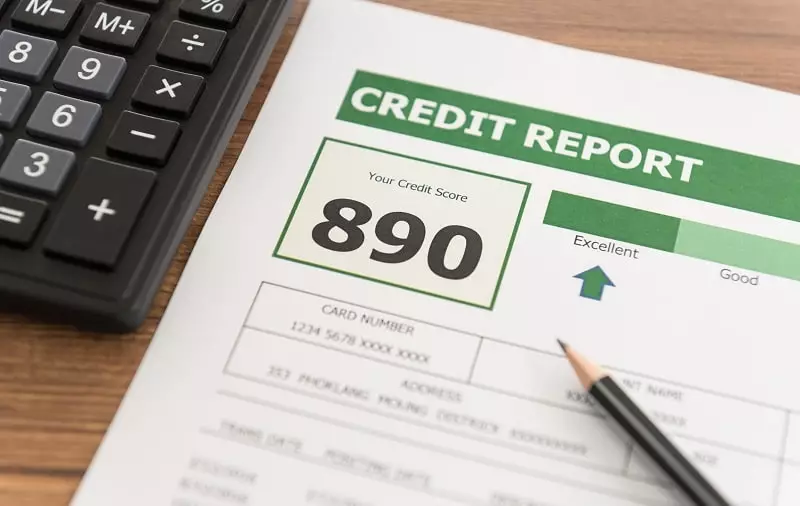Identity Theft, What to Do If You’re a Victim in 10 Simple Steps
Table of Contents
- 1. Contact Banks and Credit Card Companies
- 2. Contact the Credit Bureaus & Correct All Errors/Fraudulent Activity
- 3. Put a Fraud Alert on Your Credit Report
- 4. Put a Credit Freeze on Your Credit for a While
- 5. File a Police Report
- 6. File a Complaint with the FTC
- 7. Replace Your IDs
- 8. Computer Clean Up
- 9. Change All Your Passwords
- 10. Other Tips After Identity Theft
- By David Lukic
- Published: Dec 07, 2020
- Last Updated: Mar 18, 2022
Identity theft can be devastating to the victim. It can happen in many different ways, but ultimately, your personal information is stolen and used for fraud, theft, or other nefarious purposes. Identity theft can affect different areas of your life, including your reputation, your freedom (if the theft included criminal identity theft), your credit, and other records that may now need repair.
Millions of Americans are victims of identity theft each year, and every case is different depending on the objectives of the criminals. Cleaning your life up after identity theft takes time, and effort and it may feel discouraging and overwhelming, but if you follow the steps below, you can get your life back on track as quickly as possible.

1. Contact Banks and Credit Card Companies
Your first calls should be to all your banks and credit card companies. Inform them of the identity theft and order new cards. Banks may want to change your account numbers as well. Ask to speak to the fraud department if you experienced unauthorized charges or deductions from your accounts. You may need to fill out paperwork to dispute them. Go over your contact details to make sure they haven’t been tampered with either.
Be sure to contact any companies where fraudulent accounts were opened in your name. Request a copy of the application and other documents related to the incident. Also, request that they do not report the fraudulent account information to the credit bureaus since they don’t belong to you anyway.
2. Contact the Credit Bureaus & Correct All Errors/Fraudulent Activity
Contact the three big credit reporting agencies to get a copy of all three of your credit reports. You are entitled to one free copy from each bureau in a 12-month period.
Scour them carefully for errors and indications of fraud. You will need to fill out forms to have the fraudulent information removed. Check your mailing address carefully; often, identity thieves change where your statements are mailed so you won’t catch on.

3. Put a Fraud Alert on Your Credit Report
You only need to request a fraud alert with one of the credit reporting agencies, and they will notify the other two. A fraud alert tells potential creditors that you were a victim of identity theft and to take extra precautions when someone applies for new credit in your name or using your social security number. Creditors are required to verify your identity when there is a fraud alert on your credit report.
4. Put a Credit Freeze on Your Credit for a While
If someone gained access to your most sensitive information and used it to steal from you, commit crimes in your name, or open new lines of credit, you may want to consider a credit freeze for a while. When your credit is frozen, no one can see it. You will have to contact all three credit bureaus, and it’s free, but you may find peace of mind by knowing that no one can open any new credit cards, loans or other accounts using your information with a credit freeze in place. You can remove it at any time.
5. File a Police Report
One step that many victims miss is filing a police report. The documentation is important, especially when proving identity theft later, and some banks, credit card companies, and the FTC will want to see an official police report before moving forward. Bring along the documents that you received from the fraudulent accounts proving that theft of your identity occurred. The FTC will want to see these as well.
6. File a Complaint with the FTC
File a complaint with the FTC, the government agency in charge of identity theft, and monitoring and regulating the credit bureaus. They have a nice, user-friendly web portal making it easy for you to file an incident report. Have your documentation ready and verification of your ID (birth certificate, passport, social security card, etc.).
7. Replace Your IDs
After identity theft, it is a good idea to get a new copy of your IDs. If your social security number was compromised, the Social Security Administration can issue you a new number and new card. If your identity were stolen through the loss of your wallet, you would need to get a new driver’s license also.
8. Computer Clean Up
Some of the ways that identity theft occurs are through a hacked computer, malware, viruses, and fake emails. Now is a good time to clean things up. A list of items you don’t want to forget are:
- Install strong antivirus/anti-malware software on your computer and run deep scans often.
- Update your operating system to the latest version with all security patches.
- You might want to consult a computer professional to check your network and computer security settings. Cybercriminals can break in easily if things are not secured properly.
- Research the best privacy and security settings for your browser and implement them.
- Consider a VPN to mask all your online activities and keep the hackers at bay.

9. Change All Your Passwords
Along with tightening up your computer, be sure to change your computer, Wi-Fi, and all other login passwords immediately. Pay close attention to any bank, credit card, or other “personally sensitive” logins. Always use very strong passwords, which are made up of a long combination of letters, numbers, and symbols. Alternate case from lower to uppercase to make things even harder to crack.
10. Other Tips After Identity Theft
Some other recommendations for after identity theft are:
- DMV - visit the DMV and let them know about your identity theft and make sure all your information there is correct.
- Health Insurance/Medical Providers - contact all your providers and again, check to see that your information has not been compromised by some scoundrel.
- Utility companies - utility companies need to know as well. Fraudsters open up new accounts in your name and then vanish without paying the bills.
- IRS - to avoid being a victim of tax fraud as well, let the IRS know that your information was stolen and used inappropriately, so they can keep an eye out.
















